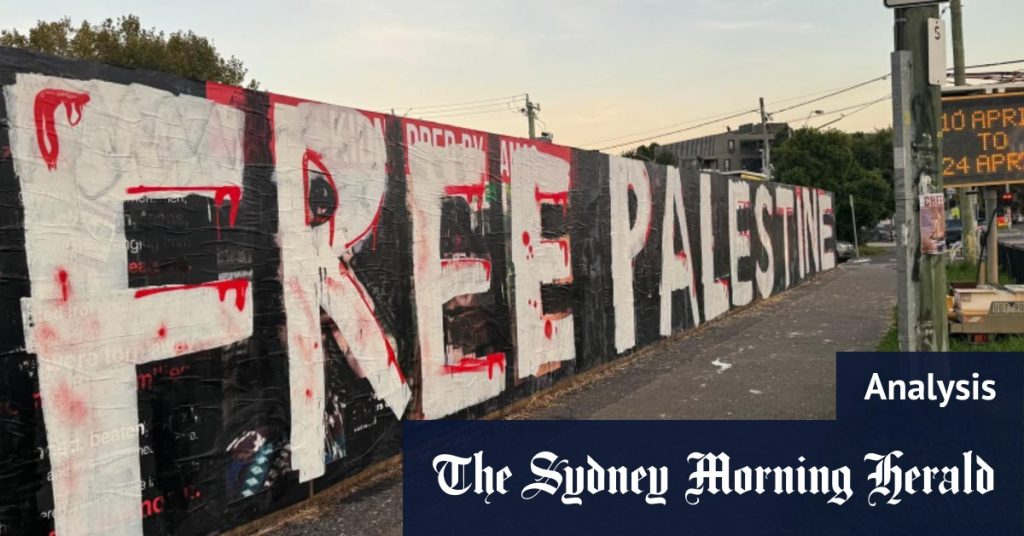The recent attacks on Assyrian Christian churches in Melbourne and Israeli tribute sites in Sydney have highlighted the growing intolerance and violence in Australian cities. While the incidents differ in severity, they both reflect a radical intolerance for political, ideological, and religious differences. Deakin University professor Greg Barton compares this rising intolerance to climate change, noting that since October 7, there has been a significant increase in energy within the system, leading to a rise in violent incidents.
Prime Minister Anthony Albanese’s declaration that there is no place for violence in the community, while well-intentioned, fails to acknowledge the corrosive forces at play in Australia’s largest cities. ASIO Director-General Mike Burgess and Foreign Minister Penny Wong have both raised concerns about the escalating tensions stemming from the conflict in Gaza, which has led to an increase in hateful rhetoric targeting various communities, including Jews, Muslims, and Palestinians. Burgess highlighted the risk of lone-wolf terror attacks inspired by religious or ideological motivations, emphasizing the need for vigilant monitoring to prevent such incidents.
Burgess warned of the potential for a terrorist attack or attack planning within the next 12 months, highlighting the need for increased security measures. Wong also expressed concern about the divisiveness and lack of respect for different perspectives that have emerged in discussions about the Israel-Palestine conflict, noting the rise of antisemitism and Islamophobia in public discourse. She emphasized the importance of listening to and respecting each other to uphold democracy and prevent further escalation of tensions.
Experts like Barton point out that behind every lone attacker, there is typically a circle of malignant individuals who influence and incite them to violence. Counter-terrorism investigators focus on identifying and dismantling these networks to prevent future attacks. However, it is more challenging to understand the motivations of individuals who engage in symbolic acts of vandalism, such as defacing images depicting children in conflict situations. This type of internal conflict and societal division poses a greater threat to community harmony and undermines efforts to foster understanding and cooperation.
The recent attacks on places of worship and memorial sites underscore the need for increased awareness, tolerance, and respect for diverse perspectives within Australian society. The incidents serve as a stark reminder of the potential consequences of unchecked intolerance and violence, as well as the importance of addressing underlying societal divisions and promoting dialogue and understanding. By actively listening to and respecting different viewpoints, individuals and communities can work together to prevent further acts of violence and build a more inclusive and harmonious society. Only through mutual respect and cooperation can Australia overcome the challenges posed by rising tensions and extremism.


